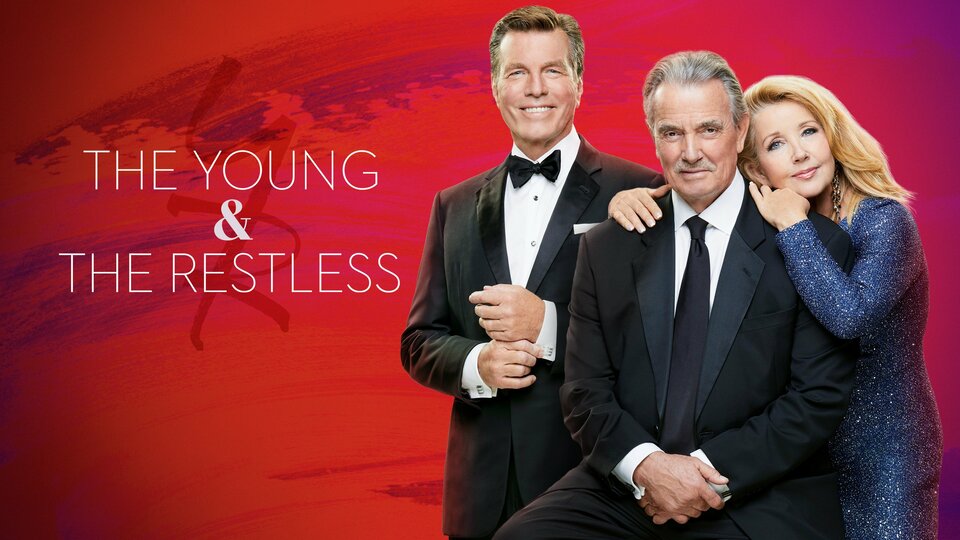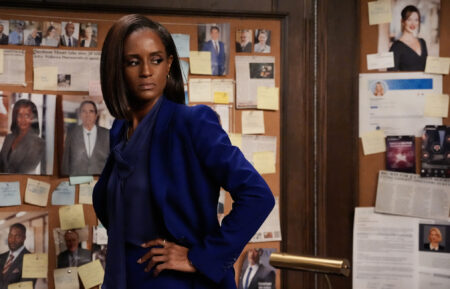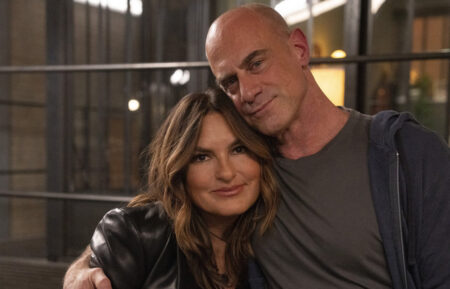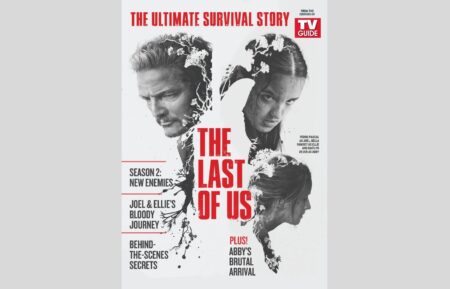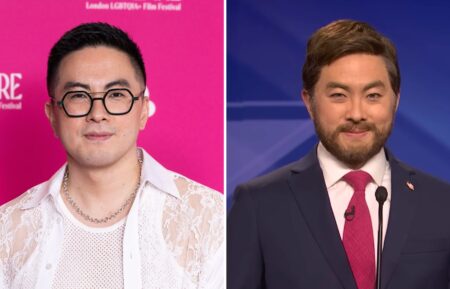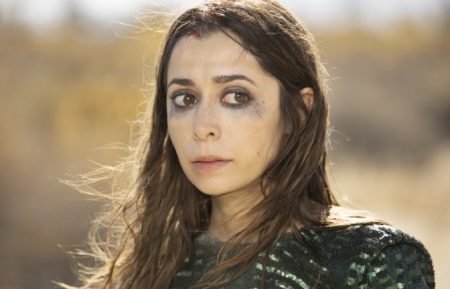Round 2: The Young and the Restless Chiefs Jill Farren Phelps and Chuck Pratt Answer Our Burning Questions
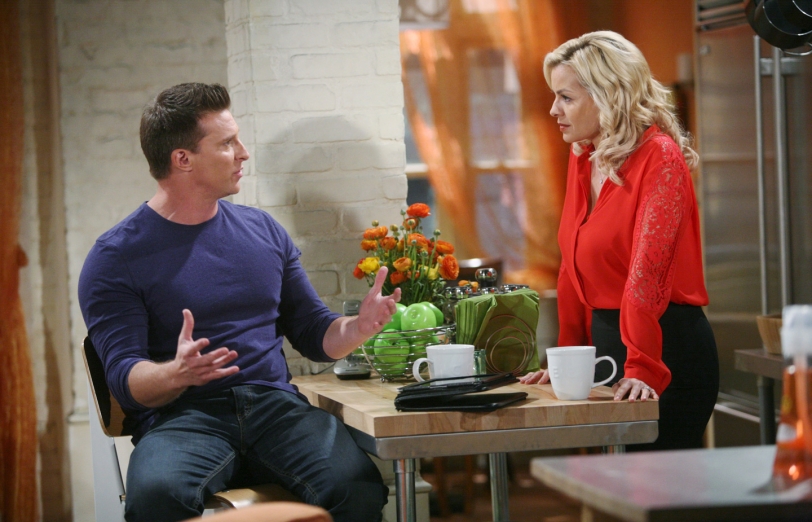

Controversy, thy name is The Young and the Restless! Last week, the first half of our interview with the big cheeses at the CBS soap—executive producer Jill Farren Phelps and co-executive producer/head writer Chuck Pratt—stirred up lots of pro-and-con commentary on social media. OK, mostly con. (If you missed Part 1, you can find it here.) Now it’s time for Part 2 of our chat, in which Phelps and Pratt answer—or occasionally evade—the hot-topic questions Y&R fans are asking.
Will you be acknowledging the fact that Phyllis—though she doesn’t know it yet—is basically being raped by her husband’s doppelgänger? Granted, the “Two Jacks” story is mostly being told for fun, but there’s a sordid side to this plot that you can’t ignore.
Pratt: When we are at a point in the plot months from now, Phyllis—who is sensitive, deeply emotional and a little bit crazy—will become the lead detective in the story of the two Jacks and what happened to the real one. She starts to play all the clues over in her head and begins to talk to other people about it. And to me that makes it a great romance. It becomes a great love story with the real Jack and Phyllis, and it also features Ashley and Nikki—all three of the kickass women in his life. I think the audience will love it.
Phelps: But it’s interesting if Phyllis would come to realize, after all of this, that she has been violated, and what her reaction to that would be. There have been a lot of lies told.
So, then, you will deal with the rape?
Pratt: At the end of the story, whoever is responsible for this—that would be Victor—has some explaining to do.
Victor seems more and more like a Stefano DiMera-type supervillain. Is this the Mustache of the future?
Pratt: I talked to Eric Braeden about this a lot, before the story started, and said, “If you object to this, tell me now.” He wanted to know Victor’s endgame, so I discussed how this is a Frankenstein story where Victor has created a monster and there’s no way you can make a monster do everything you want. Victor gets to the point where it’s, “Oh, my God, how the hell am I going to get out of this?” The audience will be rooting for him as he tries to protect his family. Meanwhile, we’re playing what I feel is the coolest part of the story—Victor’s plan to merge Jabot and Newman Enterprises. I’ve written a lot of business stories in my time and this one is my only favorite.
So Braeden is on board with all this?
Pratt: I heard all the stories—“Ooh, watch out for The Mustache! Wait till he gets unhappy and comes to your office to complain!” But Eric and I have become, like, best friends. Sure, he gets a little mad sometimes but it’s always with good reason. The older actors on the show know their characters so well.
Let’s talk about the Michael Baldwin prostate cancer plot, a story that has never felt authentic.
Pratt: Christian LeBlanc loves it.
That’s apparent, and he certainly gives it his all. But nothing about this plot rings true, least of all Michael shoving Lauren toward Cane, who is a married man, so that she can be sexually serviced. Granted, this isn’t a Pratt story—it was left over from the previous writing regime—but now it’s an even worse mess. What’s the problem? Do you resent being stuck with it?
Pratt: I did have problems with it, but not because it was a cancer story. I’ve told some good cancer stories in my day. My problem, when I came to this show, was that all the women in the story were sitting around talking about erections and other stuff that made me uncomfortable. Cancer is another old soap opera wheeze that can bring out the tears and, in the case of Michael and Lauren, it’s a great opportunity to examine a marriage. But this is a type of cancer that’s basically curable and everybody knows we’re not going to kill off Michael, so that meant we had to wrestle with complications. Michael and Lauren were an interesting couple at one point, but they had become a little bit boring and I felt the same thing about Lily and Cane, so the idea was to push Lauren and Cane together. This was one of the most successful stories we did on Melrose Place. Marcia Cross’ character was dying of a brain tumor and she pushed her cheating husband together with a hooker, Kelly Rutherford’s character, never expecting they would fall in love. And that plot went on for years! I thought the two Y&R couples were mired in the same-old same-old and needed a fix. Yes, the audience likes them right where they were but, to me, in the show I envision, they weren’t playable.
Phelps: Great love stories have to fall apart. They have to be challenged
Pratt: And this one is not going where people expect.
Phelps: But Chuck definitely didn’t like the story.
How about you? Did you like it?
Phelps: No.
Why did you do it then? You’re the boss lady!
Phelps: When that story was pitched, Michael was going to fight his cancer. That’s how we started, but then it became attenuated and developed into something else. And, by the way, I’m not alone in making decisions about the stories we tell. Sometimes there are misdirections and they need to be dialed back, but you still have to find a way to get out of a story once you’ve started it, especially when it’s a serious disease. You can’t just drop it.
Pratt: Nothing about this story is exciting me that much, but at least something’s happening and there’s some conflict now. I want the story to account for something. You don’t want people to look back and say, “Oh, remember when they tried that story…” and roll their eyes. If there’s anything that hurts daytime, it’s telling a story and ending it too quickly or ending it dishonestly. And that was happening a lot on this show.

Why doesn’t Ashley have a story of her own? Eileen Davidson is one of the few true superstars of the soap world, yet she’s a supporting actress in everybody else’s plot.
Phelps: That has to be one of the things at the top of our “to do” list. We recognize the greatness of the actress and the woman. When Eileen first came back to us, she did not seem to have much of an appetite to be in the center of things but, yes, we need a great story for her.
Pratt: I want to set up Ashley to be an equal to Jack and Victor, and I also see a great mother-daughter story for her as we move forward. Melissa Ordway [Abby] has a great energy and is a lively voice for the future of Y&R. Hunter King [Summer] can deliver the pathos every second, but Melissa brings something fun and goofy—Robin Mattson has that same gift—and for a writer that’s exciting. Abby’s crazy relationship with Austin really woke me up. I was, like, “Wow! This actress can work with anybody on the show.” That is my sick goal for every character. I want to build the show in such a way that we can put any two characters together in a scene and there will be a connection. They will have something of significance to talk about.
Phelps: One of our big problems, and we really need to fix it, is that almost all of our young characters are related.
Pratt: [Laughs] You think of a great idea for a romance and then you’re like, “Oops, nope, can’t do that. They’re brother and sister!”
A lot of Sharon fans are unhappy with the way she’s being written.
Pratt: I hear that they think we use the character as a punching bag.
Well, it does seem that the last few head writers see her as some sort of psycho who needs to be punished.
Pratt: The first thing I did was take Sharon’s child away from her, and I did that because it defines passion in the character. When I learned Sharon’s back story—switching paternity records and things like that—I fell in love with the character and said, “We’ve got to get her off her meds,” because that’s when she’s interesting to me. I love seeing her as a troublemaker and feel we can play with that and still say, “In Sharon’s heart, she’s a good person.” It makes her a valuable and beloved character, who shouldn’t just be in a monogamous relationship with Nick raising Faith. Maybe that’s what some in the audience want but, to me, that would be a great waste of Sharon Case’s talent.
Phelps: One of the reasons Sharon Case is so popular is that she’s so game as an actress. She shows up one day and her character is nuts, the next day she’s not, and the actress plays it all, beautifully and fully. She’s very willing to go wherever we want her to go in a way other actors won’t.
Now that Avery and Joe seem reunited, are you fully committed to putting Sharon and Dylan together?
Phelps: We are moving ahead with Dylan and Sharon. They’ve both been through a lot. Dylan is a rescuer and, right now, Sharon needs saving. They were friends when Dylan first came to town. In fact, Sharon was very nice to him when others weren’t. And the fact that Faith likes Dylan is a big deal, even for Nick, since Faith doesn’t like any of the women Nick is involved with. With Dylan, Sharon will find herself a really solid guy who will be very helpful to her. This is a clean slate for both of them.
And Avery?
Phelps: In Dylan’s mind, Avery has truly left him for Joe, though I don’t think that Avery thinks that. They’re just not in the same place anymore. I was and I remain a big Dylan-Avery fan. Do I think we told that story in a way that was compelling? No. But there was real promise there.
Pratt: It wasn’t dangerous and deep enough and that’s what Steve Burton does best—multi-level angst in a manly way. That’s what he delivered at General Hospital, where he had that great bromance going with Maurice Benard. I can’t even imagine Billy Miller playing Jason but, then, I haven’t watched GH. We need to take our best shot with Steve, so we’re fighting to get Dylan in the right profession and the right relationship. What’s really in his heart? What does he really want? I don’t know why the thing with Avery wasn’t as big as it should have been, but we will take it to a satisfying level and we’ll come out of it with the right people elevated in the show.
Wouldn’t the best solution be to negotiate a deal so that Burton goes back to GH to play Jason and you bring Miller back to Y&R to play Billy?
[No response]

There’s a widespread feeling on social media that the African-American characters aren’t seen as often since Chuck took over. What’s your comment on that?
Pratt: I completely understand when people say that. We’re not intentionally playing those actors less. But budget is budget. Money is money, and that affects some decisions. Sometimes a story is really thriving so other stories that are finishing up or moving into a new area will temporarily slow down. Actresses get pregnant. Certain things get in there and mess with us as we rebuild the show, but these characters and actors are of great importance to us. Kristoff St. John is gold. There has been this need to rebuild his character because I felt he wasn’t that happy with the story, even though it was one of the more interesting ones when I took over. He and I didn’t share the same level of enthusiasm for it. I met with all the actors in the Hilary-Devon-Neil story and realized that they felt they were playing the same thing over and over. Hilary and Devon would sleep together. Then they felt guilty and stop. Then they’d sleep together again. Then they’d stop. It’s as if they were completely brainless. So we decided to have Neil get his sight back so we could move on with the next phase of the story.
At one point there seemed to be the possibility of a Neil-Nikki fling.
Pratt: There still is. It’s a fascinating relationship between codependent alcoholics and we will continue to play that, getting deeper and deeper into it. It’s controversial and that’s why we like it. When a network balks at a story idea, I know I’ve got something. Notes from the network many times come out of a sense of fear. I was fascinated that the audience loved Devon and Hilary together, even though she was Neil’s wife and he was Neil’s son and they were having sex while Neil was blind! Clearly, in that case, the audience liked controversy.
Greg Rikaart recently gave an interview stating that he wants his character, Kevin, to be gay. What are the chances of that happening? There’s a rabid camp of fans who want Kevin to get it on with Detective Harding.
Phelps: Really?
Yep, Harding and Fisher. Their squish name is Harder.
Phelps: I never heard that before. I don’t go online.
Pratt: With the right circumstance and right character—it could be Kevin or someone else—I would love to tell that story. I’ve told a gay storyline on every show I’ve ever been on, and it’s odd that there isn’t a gay relationship on Y&R.
Phelps: It would need to feel fresh and not just a box we check, just because that’s what people expect. It needs to be more than that. It needs to be about characters the audience cares about. You can’t do a gay storyline just for the sake of it.
But Y&R is the only soap without LGBTQ characters and the show’s track record is abysmal. The two or three gay characters that have popped up over the years have quickly vanished. Is there fear at the network that mainstream America—Y&R‘s core audience and the people who keep it No. 1—just can’t handle a gay story?
Pratt: We shouldn’t do a gay storyline because we’re the only ones who don’t have one. I would look for the story that’s never been done. Lord knows, I did that on All My Children with a lesbian story that got me in nothing but trouble with everybody. But it was a fun story. [Laughs] And it sure hadn’t been done before. I can’t imagine there’s a storyline—be it gay, lesbian or transgender—that wouldn’t be acceptable on a soap at this network. Or anywhere else. I have never encountered a situation on any show where they say, “You cannot tell that kind of story” or “We don’t do that on this show.” Maybe years and years ago that happened but not now. And, even if there was that pressure, I have to be in charge of the storytelling. I can’t be the one in charge of being politically correct. I leave that to others and then, unfortunately, they’ll have to deal with me. My job is to create the storylines that will keep this show successful and keep it number one. My job is to never let another show beat us.

